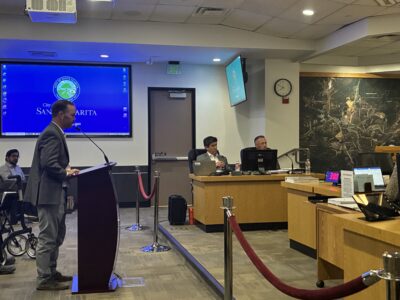Long Beach, California, is a bustling coastal city within Los Angeles County that sees its fair share of traffic incidents. This is especially true as rideshare services like Uber and Lyft have become standard modes of transportation. Recent data shows that in 2023, over 4,800 rideshare‑related collisions occurred in the region, reflecting a notable rise in urban crashes involving these platforms. With busy corridors such as the 710 Freeway, Pacific Coast Highway, and major intersections like 8th Street & Termino and 54th Place & East Ocean Boulevard, riders and drivers face growing risks when rideshare vehicles are on the road.
Due to these trends, an Uber accident lawyer in Long Beach is critical for those injured in rideshare crashes. Accidents involving Uber vehicles often bring added legal complexity, ranging from layered insurance policies to whether the driver was actively engaged with the app at the time. That’s why a different legal approach is required for rideshare collisions, and understanding local Long Beach dynamics is crucial in navigating a claim.
The Nature of Rideshare Services
Ridesharing uses private cars to transport passengers. Drivers work with a rideshare company under a contract and pick up passengers from a mobile app. This changes the legal responsibilities and protections associated with vehicle ownership and blurs the lines between personal and commercial transportation.
Insurance Complexities
Insurance coverage is another very different aspect of rideshare accidents. Most conventional car insurance policies may not cover driving incidents while the driver is online via a rideshare app. Rideshare companies tend to offer specific insurance policies, although the level of coverage varies depending on the driver’s status at the time of the accident. For example, the coverage levels may differ if the driver is available for a ride request versus in transit with a passenger.
This layered insurance model can create headaches for claims. Those directly impacted must determine how to apply the policy and to what degree. Understanding the driver’s status and the rideshare company’s policies is key to navigating this claims process.
Liability Challenges
Liability may not be clear-cut in an accident involving a rideshare driver. Unlike other auto accidents, several parties are often involved, including the driver, the rideshare company, and possibly other motorists. The level of responsibility of each party is case-specific.
Rideshare companies have continuously claimed their drivers are independent contractors, not employees, which affects the company’s liability. This distinction may affect whether or not the company is liable for the driver’s actions, making it more difficult for victims to file claims against the company itself.
Regulatory Differences
Rideshare services are not the same and vary based on the region. These laws can influence insurance mandates, driver background checks, and others. A ride-sharing accident occurs while the driver uses their ride-sharing service, Uber or Lyft.
Others, however, have gone a step further and created actual legislation designed to cover these scenarios so that individuals and families have a dedicated method of receiving compensation after a rideshare incident in these areas. However, these regulations are not uniform, and the absence of governance makes it even more confusing.
Legal Options for Victims
Rideshare accident victims have a variety of legal options. They might also have claims against the driver’s and rideshare company’s insurance companies and might even have claims for lawsuits from other third parties. The exact action an individual may choose will differ, depending on how the accident occurred and the evidence they may have to help them in their case.
Victims must follow their case closely by documenting everything around the accident — photographs, witness statements, communication with the rideshare company, and other relevant information. This can also hold invaluable information for building a case to help show what you deserve in compensation.
The Importance of Legal Assistance
As rideshare accidents can be complex, it often makes sense to seek help from an attorney. Proficient lawyers in this field can tactfully maneuver the complex maze of insurance policies, liability concerns, and local laws. Also, they help negotiate settlements or litigate if necessary.
The rideshare accident attorney you choose can significantly impact the case outcome. They work to ensure that victims secure their rightful compensation for their damages and losses.
Final Thoughts
When an accident occurs with a rideshare service, the convenience comes with distinct legal challenges. Knowing how this differs from traditional cases regarding insurance, liability, and regulations is essential. Victims need to be prepared for some complications to enable them to receive the proper compensation. In cases like this, professional legal guidance proves invaluable to help you navigate a complex legal landscape and advocate for your best interests.






